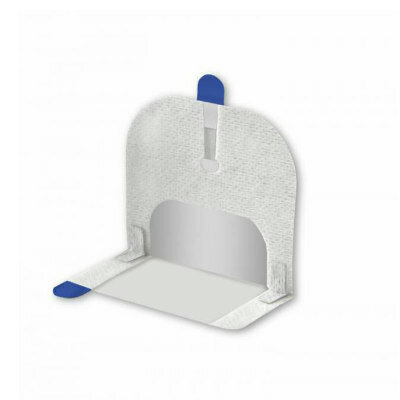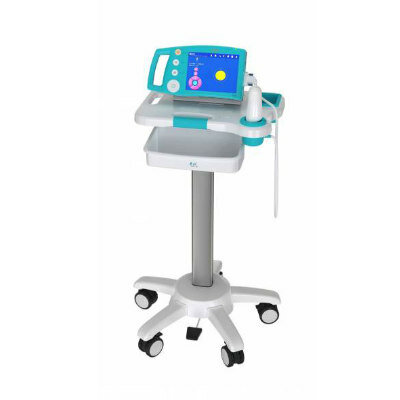Breakthrough AI Platform Predicts Likelihood of Lung Cancer by Analyzing CT Scans
|
By MedImaging International staff writers Posted on 30 Mar 2023 |

Lung cancer is responsible for the most cancer-related deaths globally. The current survival rate after five years is a mere 20%, largely due to patients being diagnosed at advanced stages (Stage III or IV) after symptoms have manifested. In contrast, small tumors detected at Stage IA have a survival rate of up to 90%. There is a need for an effective strategy to identify more small, pre-symptomatic lung cancers early on in the two million patients in the United States annually who incidentally have a lung nodule detected during chest CT scans ordered for other purposes, such as emergency room or cardiac scans.
The current protocol requires monitoring patients for one to two years to determine the malignancy of a lung nodule. However, the majority of patients (over 60%) fail to receive the recommended follow-up, severely limiting opportunities for early diagnosis and treatment. For those who do receive proper monitoring, multiple imaging scans and biopsies are often necessary, which can result in unnecessary invasive procedures such as surgical biopsies and lung resections before a definitive diagnosis is reached. Now, a new artificial intelligence (AI) tool is designed to solve this problem by allowing pulmonologists to identify and track patients with suspicious lung nodules and make informed decisions regarding clinical management.
Optellum Ltd.’s (Oxford, UK) Virtual Nodule Clinic software incorporates a clinically-validated Lung Cancer Prediction (LCP) score to enable clinicians to more accurately evaluate the risk of lung cancer and make optimal clinical decisions for patients. This AI tool is designed to address the problem of missed opportunities for early intervention and treatment by helping pulmonologists identify and track at-risk patients with suspicious lung nodules. The LCP score is computed from 3D pixel patterns in standard CT images, which are already widely available in modern hospitals. By training on over 70,000 CT scans, Virtual Nodule Clinic can predict the likelihood of lung cancer and classify patients into high-risk, intermediate-risk, or low-risk categories. This technology helps reduce unnecessary biopsies for low-risk patients while enabling timely biopsies and treatment for high-risk patients with cancerous nodules. Additionally, this software reduces the need for multiple imaging scans and invasive procedures, thereby improving patient outcomes.
The use of Optellum's Virtual Nodule Clinic by physicians has demonstrated an improvement in diagnostic accuracy and clinical decision-making. Optellum's LCP has undergone extensive validation in multi-center studies led by co-authors of clinical guidelines, and consistently outperformed conventional risk prediction models recommended in current clinical guidelines. These models are considered state-of-the-art in classifying nodules as low, intermediate, or high risk. For instance, one independent validation study, led by physicians, revealed that the AI accurately reclassified indeterminate nodules into high- and low-risk categories in over one-third of cancers and benign nodules. This demonstrates its potential for accelerating lung cancer diagnosis and reducing invasive biopsies and surgeries on patients without lung cancer, compared to the current standard of care.
Related Links:
Optellum Ltd.
Latest General/Advanced Imaging News
- New AI Method Captures Uncertainty in Medical Images
- CT Coronary Angiography Reduces Need for Invasive Tests to Diagnose Coronary Artery Disease
- Novel Blood Test Could Reduce Need for PET Imaging of Patients with Alzheimer’s
- CT-Based Deep Learning Algorithm Accurately Differentiates Benign From Malignant Vertebral Fractures
- Minimally Invasive Procedure Could Help Patients Avoid Thyroid Surgery
- Self-Driving Mobile C-Arm Reduces Imaging Time during Surgery
- AR Application Turns Medical Scans Into Holograms for Assistance in Surgical Planning
- Imaging Technology Provides Ground-Breaking New Approach for Diagnosing and Treating Bowel Cancer
- CT Coronary Calcium Scoring Predicts Heart Attacks and Strokes
- AI Model Detects 90% of Lymphatic Cancer Cases from PET and CT Images
- Breakthrough Technology Revolutionizes Breast Imaging
- State-Of-The-Art System Enhances Accuracy of Image-Guided Diagnostic and Interventional Procedures
- Catheter-Based Device with New Cardiovascular Imaging Approach Offers Unprecedented View of Dangerous Plaques
- AI Model Draws Maps to Accurately Identify Tumors and Diseases in Medical Images
- AI-Enabled CT System Provides More Accurate and Reliable Imaging Results
- Routine Chest CT Exams Can Identify Patients at Risk for Cardiovascular Disease
Channels
Radiography
view channel
Novel Breast Imaging System Proves As Effective As Mammography
Breast cancer remains the most frequently diagnosed cancer among women. It is projected that one in eight women will be diagnosed with breast cancer during her lifetime, and one in 42 women who turn 50... Read more
AI Assistance Improves Breast-Cancer Screening by Reducing False Positives
Radiologists typically detect one case of cancer for every 200 mammograms reviewed. However, these evaluations often result in false positives, leading to unnecessary patient recalls for additional testing,... Read moreMRI
view channel
PET/MRI Improves Diagnostic Accuracy for Prostate Cancer Patients
The Prostate Imaging Reporting and Data System (PI-RADS) is a five-point scale to assess potential prostate cancer in MR images. PI-RADS category 3 which offers an unclear suggestion of clinically significant... Read more
Next Generation MR-Guided Focused Ultrasound Ushers In Future of Incisionless Neurosurgery
Essential tremor, often called familial, idiopathic, or benign tremor, leads to uncontrollable shaking that significantly affects a person’s life. When traditional medications do not alleviate symptoms,... Read more
Two-Part MRI Scan Detects Prostate Cancer More Quickly without Compromising Diagnostic Quality
Prostate cancer ranks as the most prevalent cancer among men. Over the last decade, the introduction of MRI scans has significantly transformed the diagnosis process, marking the most substantial advancement... Read moreUltrasound
view channel
Deep Learning Advances Super-Resolution Ultrasound Imaging
Ultrasound localization microscopy (ULM) is an advanced imaging technique that offers high-resolution visualization of microvascular structures. It employs microbubbles, FDA-approved contrast agents, injected... Read more
Novel Ultrasound-Launched Targeted Nanoparticle Eliminates Biofilm and Bacterial Infection
Biofilms, formed by bacteria aggregating into dense communities for protection against harsh environmental conditions, are a significant contributor to various infectious diseases. Biofilms frequently... Read moreNuclear Medicine
view channel
New SPECT/CT Technique Could Change Imaging Practices and Increase Patient Access
The development of lead-212 (212Pb)-PSMA–based targeted alpha therapy (TAT) is garnering significant interest in treating patients with metastatic castration-resistant prostate cancer. The imaging of 212Pb,... Read moreNew Radiotheranostic System Detects and Treats Ovarian Cancer Noninvasively
Ovarian cancer is the most lethal gynecological cancer, with less than a 30% five-year survival rate for those diagnosed in late stages. Despite surgery and platinum-based chemotherapy being the standard... Read more
AI System Automatically and Reliably Detects Cardiac Amyloidosis Using Scintigraphy Imaging
Cardiac amyloidosis, a condition characterized by the buildup of abnormal protein deposits (amyloids) in the heart muscle, severely affects heart function and can lead to heart failure or death without... Read moreImaging IT
view channel
New Google Cloud Medical Imaging Suite Makes Imaging Healthcare Data More Accessible
Medical imaging is a critical tool used to diagnose patients, and there are billions of medical images scanned globally each year. Imaging data accounts for about 90% of all healthcare data1 and, until... Read more
Global AI in Medical Diagnostics Market to Be Driven by Demand for Image Recognition in Radiology
The global artificial intelligence (AI) in medical diagnostics market is expanding with early disease detection being one of its key applications and image recognition becoming a compelling consumer proposition... Read moreIndustry News
view channel
Bayer and Google Partner on New AI Product for Radiologists
Medical imaging data comprises around 90% of all healthcare data, and it is a highly complex and rich clinical data modality and serves as a vital tool for diagnosing patients. Each year, billions of medical... Read more




















